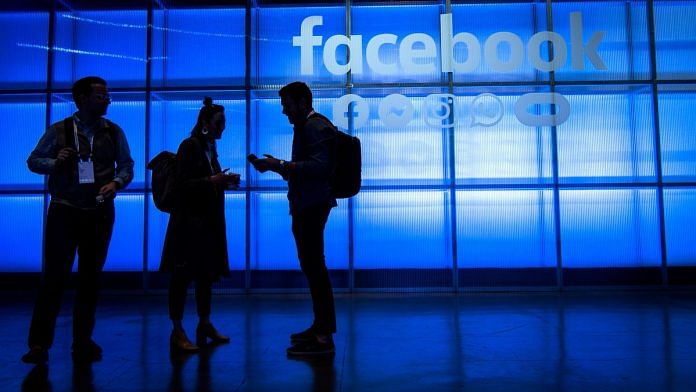Thank you dear subscribers, we are overwhelmed with your response.
Your Turn is a unique section from ThePrint featuring points of view from its subscribers. If you are a subscriber, have a point of view, please send it to us. If not, do subscribe here: https://theprint.in/subscribe/
In the shocking interview to 60 Minutes on Feb 4th 1996, when Jeffrey Wigand uttered those famous words “we are in the nicotine delivery business”.
Exposing the Big Tobacco companies, little might the biochemist have known back then, that even behaviours that did not involve ingestion of any psychoactive or psychotropic substance (like nicotine) could also result in alteration of the brain’s chemistry.
As the executives at Brown & Williamson Tobacco Corp were secretly mixing chemicals to enhance nicotine absorption to foster ‘addiction’ in smokers to drive sales, little would they have fathomed that a few decades later along with ‘substance abuse’ The American Psychiatric Association shall also include ‘behavioural addiction’ as a diagnosable problem.
Even the crew at 60 Minutes would not have imagined that, in just twenty years since the explosive Wigand interview that brought down the Big Tobacco industry, history would repeat itself for the show, but this time, it would be directed at the Big Tech. They didn’t imagine that in 2017, Tristan Harris, a former Google engineer, would hold up his smartphone, look into the camera, and would go on to say “this thing (in my hand) is a slot machine”, indirectly saying that we all are vulnerable consumers in this business of digital addiction.
Back then Wigand understood the detrimental effects of engineering chemicals into the cigarettes that would intensify such cravings leading to harmful addiction in youngsters, so did Tristan Harris and maybe so does Francis Haugens.
“They are programming people.” and not programming just the apps, Harris had quoted in the 60 Minutes interview. “There is a strong narrative that technology is neutral and it is up to us to choose how to use it. This is so not true. Technology is not neutral as they want you to use it in particular (or specific) ways and for long periods of time. Because that’s how they make money.” he further added.
‘These new technologies are particularly well suited to foster behavioural addictions. The addictive properties of these technologies are not accidents but carefully engineered design features.’ claimed Adam Alter, a noted business professor with a doctorate in social psychology from Princeton University.
‘The thought process that went into building these apps, Facebook being the first of them, was that “how do we consume as much of your time and conscious attention as possible?”And that means we need to give dopamine hit every once in a while because someone liked or commented on a photo or a post or whatever.’ said Sean Parker, one of the founding members of Facebook, in a candid interview at an event in 2017.
Our brain develops what is called a psychological craving when we post something on a social media platform making us grow increasingly anxious after posting and crave for the likes or shares, or even to repeatedly take a sneak peak on these platforms. The technology companies internally refer to this as a positive reinforcement loop, and are very much aware of the power it has on users. With this in mind, they accordingly tweak their products to make the pull even stronger keeping users hooked onto their platforms. Leah Pearlman, who was one of the product managers on the team that invented the ‘Like’ button for Facebook, has herself become so wary of the detrimental effects of the service that she has hired a dedicated social media manager to handle her account.
The Big Tech companies like Facebook of today are exactly like the Big Tobacco companies of the twentieth century. They are closely and fiercely guarding their secrets. The current mess that Facebook is in the midst of is a stark déjà vu of what transpired in the Big Tobacco expose.
Back then, it resulted in forty-six states filing a Medicaid suit against the tobacco industry, which ultimately led to a $368 billion settlement in health-related damages by the tobacco companies. Sometimes I wonder what it would cost the Big Tech The Big Tech companies like Facebook of today are exactly like the Big Tobacco companies of the twentieth century.
They are closely and fiercely guarding their secrets. The current mess that Facebook is in the midst of is a stark déjà vu of what transpired in the Big Tobacco expose. Back then, it resulted in forty-six states filing a Medicaid suit against the tobacco industry, which ultimately led to a $368 billion settlement in health-related damages by the tobacco companies.
Sometimes I wonder what it would cost the Big Tech should such a settlement arise as of today towards the potential psychological damages that their technologies may directly or indirectly inflict on its users. As users, however, we not only need to be mindful of the manipulative forces of these technology platforms that push us towards behavioural addictions, but it is also imperative for us to figure out how to put them to use in a way that works for our best and not for our worst.
—Mayur Mathur
These pieces are being published as they have been received – they have not been edited/fact-checked by ThePrint.
Also read: SubscriberWrites: Indian farmers are the modern ‘holy cows’

